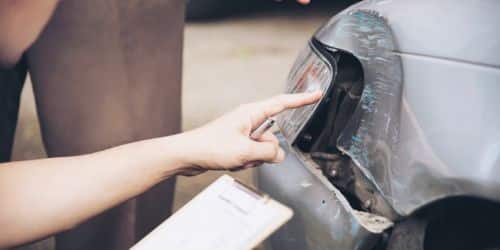Car accidents can happen anytime and anywhere due to several reasons. From human behavior to vehicle malfunctions, road users may encounter different risks leading to auto crashes. One of which is road hazards.
Unfortunately, poorly maintained roads, such as uneven pavements, potholes, and malfunctioning signals, can also cause severe collisions, resulting in significant injuries and damages.
The good news is that you have the right to file a personal injury claim to receive compensation for the damages. In this article, we’ll delve into the various aspects of car accidents and road hazards, exploring their impact on road safety while also examining legal strategies for resolving accidents resulting from poorly maintained roads.
Can Road Hazards Cause Car Accidents?
Road hazards are any condition or obstruction on the road that poses a threat or possible harm to vehicles. This can include the following:
- Potholes
- Uneven pavements
- Obstructed signage or signals
- Deteriorating road surfaces
- Inadequate lighting
- Poorly designed roads
- Slippery roads
Unfortunately, these road hazards can become dangerous, especially on highways or roads with fast-moving traffic. According to the Insurance Institute for Highway Safety, a car veering off the road and colliding with a stationary item near the road results in about 20% of motor vehicle accident deaths. The items that are often struck include road barriers, utility poles, and trees.
In 2021, there were 8,884 fatalities resulting from crashes involving fixed objects, marking a 3% increase from 2020 but a 16% decrease from the figures recorded in 1979. The percentage of motor vehicle crash deaths attributed to collisions with fixed objects has consistently ranged between 19% and 23% since 1979.
With the consistent number of car accidents attributed to road hazards, drivers must be aware and adapt their driving behavior to road conditions to reduce the probability of accidents caused by road hazards. Similarly, government entities in charge of road maintenance and safety should address and resolve problems to improve road safety for all users.
Who is Responsible for Car Accidents Due to Road Hazards?
In a car accident, the individual who caused the accident should be liable for damages. This means they must cover the expenses of the damage attributed to the collision. However, you must ensure that your injuries and damages result from a crash due to another party’s wrongful actions.
But what about road hazards? Since there are several reasons why a road hazard exists, there are also different entities responsible depending on the specific circumstances of the crash.
Other Drivers
If a vehicle is responsible for creating road debris, the driver is liable for any related damages. Most, if not all, states require a minimum insurance requirement for drivers before they can drive. Some drivers also have multiple forms of insurance coverage, and the circumstances of the incident determine the specific coverage that would apply to cover your injuries.
In such an instance, you must have the necessary evidence to show that the other driver is responsible for creating such hazards. Photos of the accident, footage from your dash camera or CCTV, and a police report can help prove this.
However, there are cases where limited evidence backs a claim, leading to its dismissal. For example, you were driving on a highway in Burbank when a truck’s load went off and directly hit you. Since the truck driver didn’t notice, they drove off without stopping. Unfortunately, the load crashed into your vehicle’s front, and you sustained severe injuries. In such an instance, an injury lawyer in Burbank can assess the situation and gather evidence while you recover from your injuries.
Local Agency
In a car accident due to poorly maintained roads, such as potholes and defective signals, the local agency responsible for the road’s upkeep should be liable for the damages. You may then file a claim against the local government to receive compensation.
Take note that when pursuing a case against a local government, you have limited time to prove your case. For instance, in California, you have six months from the time of the accident to file a claim against the local agency. Failure to comply may lead to your case being dismissed.
This is why it is best to contact a personal injury lawyer who knows these legalities and will protect your rights to receive the compensation you deserve.
How to Claim Compensation After a Car Accident Due to Poor Road Conditions
Filing a personal injury case might be overwhelming, especially if you are fighting against a local agency. Aside from the legal deadline, you must also collect evidence to defend yourself. Fortunately, the following steps will help you have a smooth legal process to guarantee compensation:
Step 1: Prioritize Your Health and Seek Medical Attention Immediately.
Your health should always come first. If you are involved in a car accident, contact emergency services and get medical attention promptly. Prompt medical assistance protects your health and safety and offers crucial proof for your vehicle accident claim.
Remember that the foundation of a vehicle accident damage claim is demonstrating that you were injured due to the accident. Without evidence of injuries, you may not be eligible to file a claim.
In a car accident due to road hazards, this becomes even more complicated since you have no direct contact with the at-fault driver. This is why your health documents are essential in establishing your case.
Furthermore, specific injuries may occur days or weeks after the accident. Even if you finally feel fine, undergoing a medical evaluation to detect latent injuries is essential. Insurance companies may dispute claims for injuries not promptly documented after the accident.
Step 2: Gather Evidence at the Accident Scene.
After receiving medical care, gather as much evidence as possible from the accident scene. This evidence will be invaluable in supporting your car accident claim. Take photographs of the accident scene, including vehicle damage, road conditions, and any relevant signage or traffic signals.
You may also obtain video footage from dash cameras or surveillance cameras in the area, if available. This can help show what happened before the accident, such as if a vehicle caused road debris or you came across an unnoticeable pothole.
Moreover, you must collect contact information from witnesses and ask for their testimonies to corroborate your account of the accident. Additionally, request a copy of the police report containing essential details to strengthen your claim.
Step 3: File a Police Report.
Although it may not always be required, filing a police report can expedite the claims process and provide crucial documentation for your case. Police reports contain factual information and expert opinions about the accident, which can bolster your claim.
Moreover, certain jurisdictions require drivers to report accidents that result in injuries or significant property damage. Therefore, contacting law enforcement and cooperating fully with their investigation is advisable. Failing to report the accident promptly could complicate matters and potentially harm your claim.
Step 4: Seek Legal Counsel.
Following a car crash due to road hazards, particularly one that causes injuries, it is critical to get legal counsel. An experienced personal injury attorney can guide you through the complexities of your case, gather compelling evidence, establish liability, and advocate for reasonable compensation. They have the experience and resources to determine the full degree of your injuries and seek maximum compensation.
Consulting with an attorney early in the process can help safeguard your rights and ensure your claim is handled correctly.
Conclusion
Proving a car accident due to road hazards may be complex. What happens if you need to verify that the road was poorly designed, resulting in your crash? By following the appropriate legal steps and hiring a lawyer, you may secure compensation for such incidents, despite their complications. A competent personal injury lawyer can use their experience, expertise, and resources to execute strategies that guarantee a successful claim.





